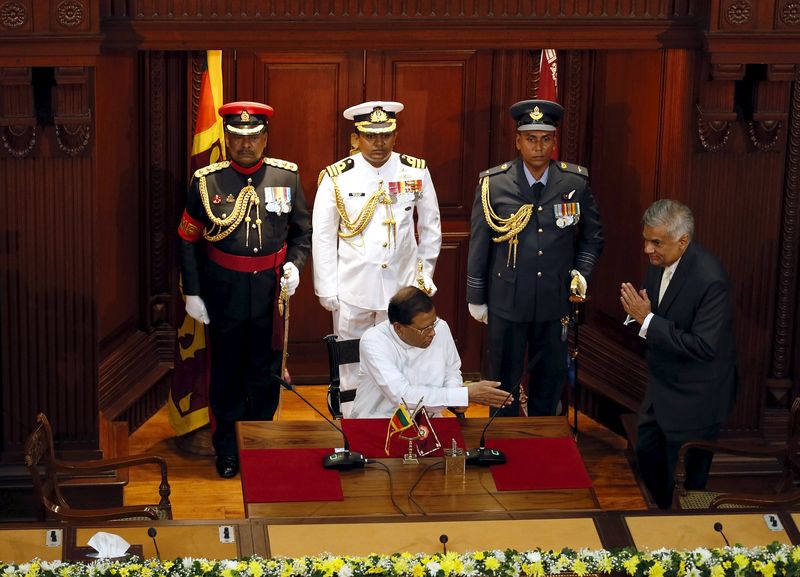COLOMBO (Reuters) - Ranil Wickremesinghe was sworn in on Friday as Sri Lanka's prime minister after winning a general election, and agreed with President Maithripala Sirisena's party to form a national unity government to push ahead with reforms.
Wickremesinghe, 66, took the oath of office in a Buddhist ceremony in the presence of Sirisena, cementing an alliance between the two that successfully fought off a comeback bid by ex-president Mahinda Rajapaksa.
His centre-right United National Party (UNP), which won Monday's poll but fell seven seats short of an outright majority, will team up with Sirisena loyalists in the Sri Lankan Freedom Party (SLFP).
"A broad-based consensus at political level will create the kind of political stability and policy stability that we need," said Sirimal Abeyratne, a professor attached to Colombo University's Economics Department.
The formation of the broad coalition will put Sirisena into a position to advance reforms begun when he quit Rajapaksa's government and in January defeated the nationalist strongman's bid to win an unprecedented third term as president.
These include changes to the constitution to make the government more open and accountable on the Indian Ocean island of 21 million, and to simplify its complex election rules.
An unlikely veteran of the cut-throat world of Sri Lankan politics, Wickremesinghe campaigned on a pledge to create one million new jobs in five years.
The pro-Western lawyer is backed by the business community but, as head of the minority government formed in January, pursued more people-friendly policies in line with Sirisena's push to overcome the legacy of a civil war that ended in 2009.

Wickremesinghe has served twice before as prime minister, in 1993-94 and from 2001-04.